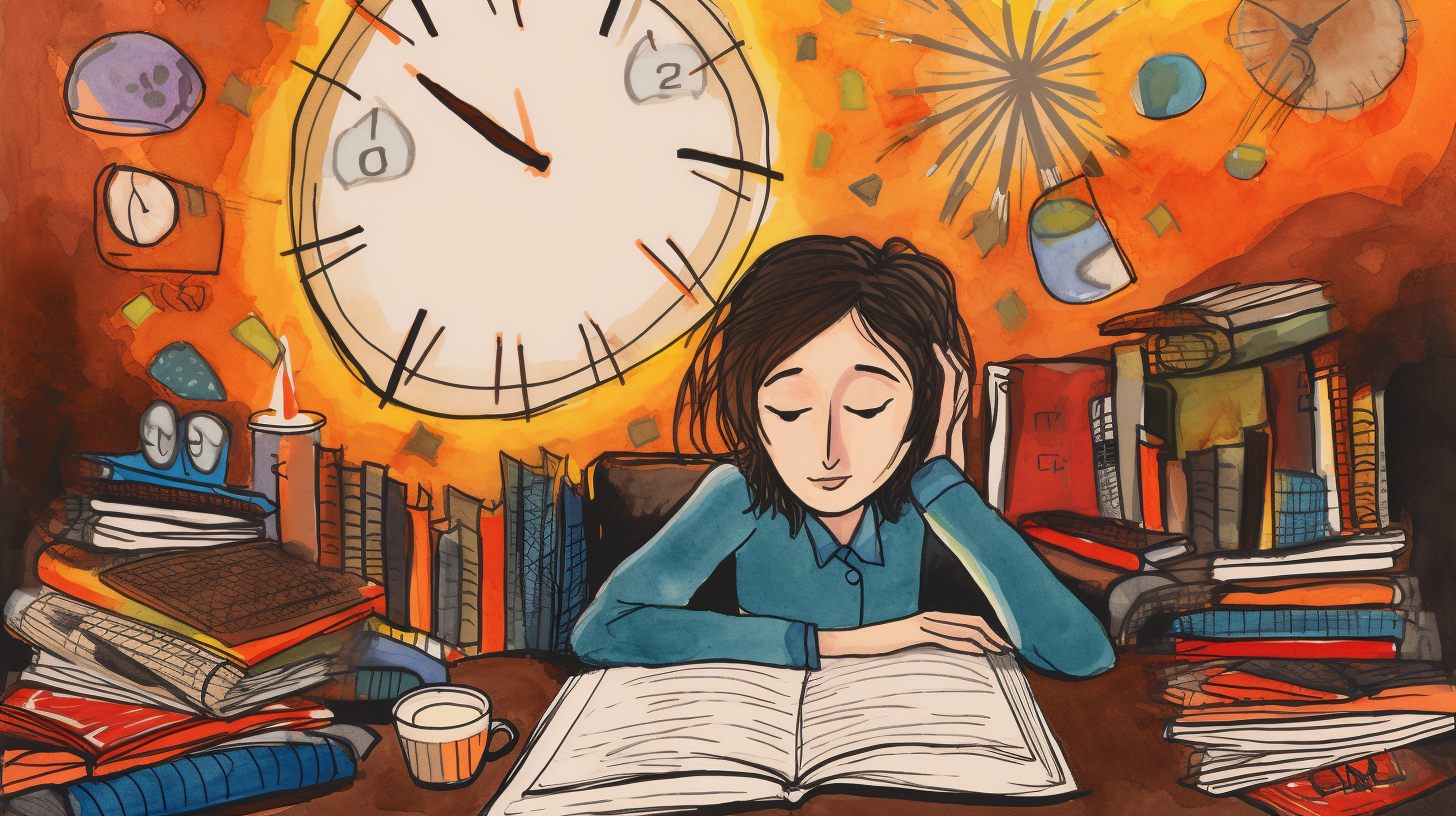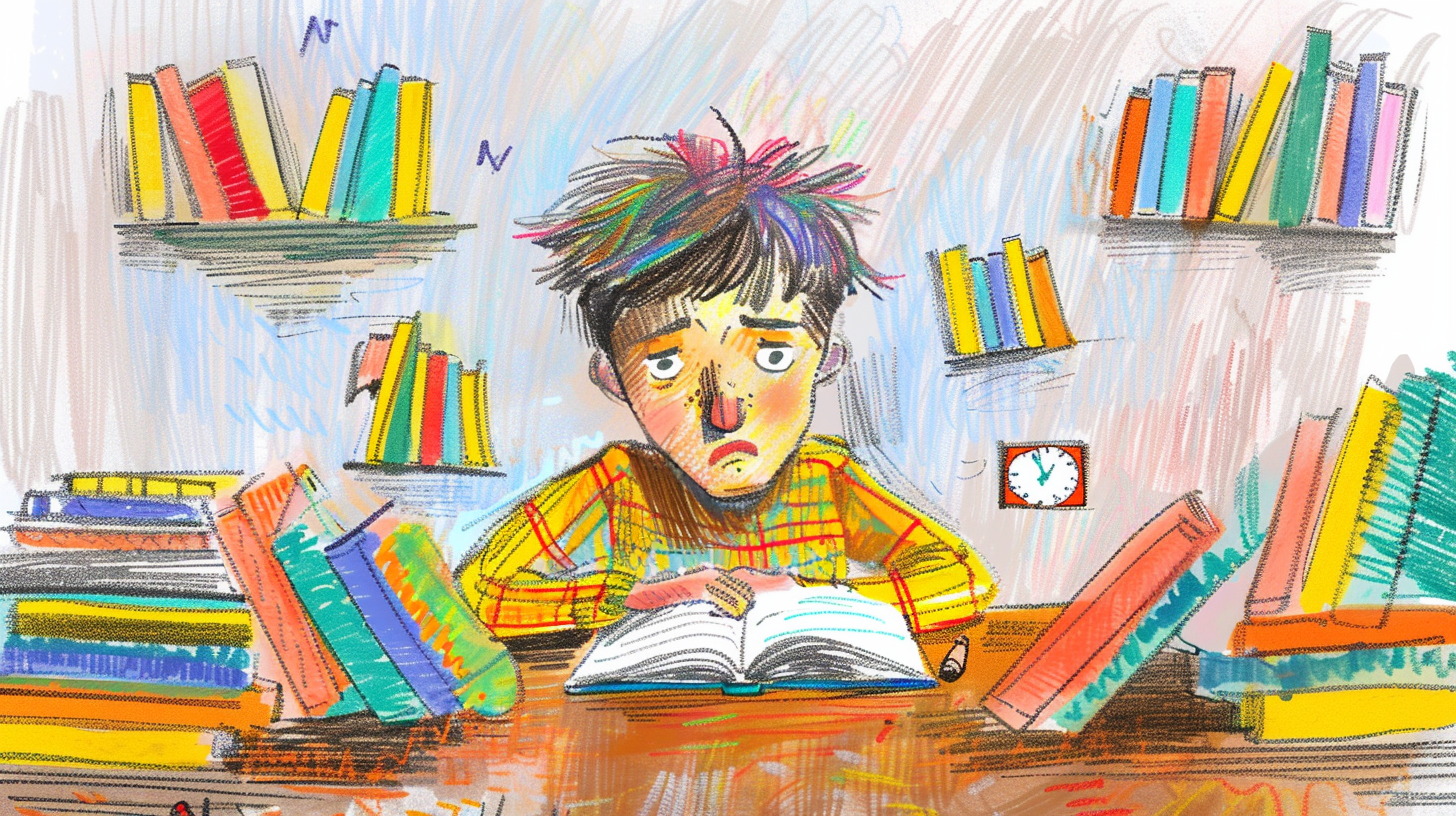Have you ever wondered if picking up a book before bed could be the secret to a good night’s sleep? Many ask, “Does reading help you fall asleep?” the answer might be more comforting than you think. In this text, we’ll explore the soothing benefits of reading before bed, investigate the science that supports this nighttime habit, and help you choose suitable reading material to promote better sleep.
We’ll also share practical tips for seamlessly integrating reading into your bedtime routine. Whether you’re struggling with sleep or looking for ways to wind down, understanding how a simple activity like reading can make a difference is vital to transforming your nights. Let’s turn the page on sleepless nights and discover how literature might be your ally in the quest for restful slumber.
Benefits of Reading Before Bed
Calms the Mind
When you read before bed, you engage in an activity that naturally eases your mind into tranquility. Diving into a book allows you to detach from the day’s worries and immerse in a different world. Your focus shifts from stress-inducing thoughts to the narrative’s unfolding events. This mental transition is instrumental in achieving a peaceful state conducive to sleep.
Reading for Sleep:
- Selecting reading material that won’t overexcite your brain right before sleep is critical. Using sleep reading practices, like reading something light or uplifting, can prep your mind for a good night’s rest.
Reduces Stress and Anxiety
Bedtime reading is more than a leisure activity — it’s a potent stress reliever. Its impact on stress reduction is often compared to meditation and deep relaxation techniques. When you’re engrossed in a story, stress and anxiety levels plummet, allowing melatonin, your sleep hormone, to take over. Your body’s stress indicator, cortisol, drops and paves the way for a serene sleep experience.
Does Reading Help You Sleep?
| Activity | Stress Reduction (%) |
| — | — |
| Reading | Up to 68 |
| Listening Music | Less than 68 |
| Drinking Tea | Less than 68 |
Establishes a Bedtime Routine
Regularly reading before sleep can signal your brain that it’s time to wind down. Establishing a bedtime routine is a cornerstone of good sleep hygiene. As you make reading a habit, your brain starts associating this activity with sleepiness, fostering a quicker and deeper sleep.
- Create a comfortable reading environment.
-
Opt for paperbacks or audiobooks to avoid exposure to blue light.
-
Stick to a specific nighttime time for nighttime reading to strengthen the sleep association.
- Whether it’s bedtime reading or listening to a book, consistency is your ally in sleep induction.
Does incorporating reading into your nighttime habits help you fall asleep? It becomes a question of when rather than if. Reading before sleep or choosing an audiobook can equally serve as your bridge to the land of dreams. Remember that reading for sleep is not just a myth; it’s a practice backed by research and success stories from many who read to sleep. So tonight, when you pick up your book or play your audiobook, you’re not just enjoying a story but setting the stage for a restful slumber.
The Science Behind It
Promotes Relaxation
When you read to fall asleep, you’re participating in a tranquil activity known to promote relaxation. Your body and mind enter a serene state, ideal for a restful sleep. Delving into a good book can help you shift your focus from the day’s stressors to the narratives on the page, setting the stage for a peaceful slumber. Notably, when you engage in bedtime reading, your heart rate slows, and your muscle tension decreases, contributing to a relaxed state and making it easier for sleep to take over.
Reduces Blue Light Exposure
Nighttime reading can mean less exposure to blue light if you opt for audiobooks or physical books instead of e-readers. Research shows that blue light suppression benefits your sleep cycle since it doesn’t disrupt the production of melatonin, your body’s natural sleep hormone. By choosing to listen to audiobooks or reading a physical book under dim light, you can significantly enhance your sleep quality. Remember, if you read before sleep, it’s best to keep digital screens at bay to prevent blue light from interfering with your rest.
Stimulates the Imagination
As you enjoy a book before sleeping, your imagination comes alive. Without the need for visual stimuli from screens, audiobooks especially allow your mind to conjure up images, scenes, and emotions, stimulating mental activity in a gentle, dream-like way. This process can help make the transition from wakefulness to sleep more natural. Not to mention, immersing yourself in a story distracts from daily worries, making it an effective strategy for those struggling with insomnia. So, does reading help you sleep? Absolutely, as it’s a dynamic yet soothing approach to calming the mind at night.
Choosing the Right Reading Material for Better Sleep
Avoiding Thrillers and Suspenseful Novels
When you’re winding down for the night, thrillers and suspenseful novels may not be your allies in achieving restful sleep. Books that trigger heightened emotions, like anxiety or excitement, can increase adrenaline levels. A study on the psychology of fear shows that heightened emotions can lead to a fight-or-flight response, impairing your ability to fall asleep quickly.
Opting for Light and Easy Reads
Instead, consider light and easy reads before bed. Choosing books that don’t elevate your heart rate or lead to prolonged periods of wakefulness is essential. Non-arousing genres, such as lighthearted novels or short story collections, provide the best opportunity for you to enjoy a book before sleeping without significant mental stimulation. Books with short chapters or light humor ease your transition into sleep, aligning with the benefits of reading before bed.
Trying Books on Meditation and Sleep
Exploring the realms of meditation and sleep through books can also be conducive to a good night’s rest. Books on these topics can help you learn relaxation techniques, enhancing your overall sleep quality. Whether you’re reading a physical copy or listening to an audiobook, these genres offer a calm, soothing narrative to help you unwind. Audiobooks, in particular, allow you to close your eyes, relax, and listen—engaging your mind at a level conducive to sleep without the need for any visual stimuli that can disrupt your readiness to sleep.
Remember, you don’t have to confine yourself to only paperbacks or traditional books. Audiobooks provide a convenient and effective alternative if reading in bed is not your preference. They offer the same benefits of reading before bed, allowing you to close your eyes and reduce the strain on them, enhancing your ability to drift off. Consider opting for an audiobook as part of your nighttime reading ritual.
You can enjoy the experience hands-free and avoid concerns about lighting or holding a book. Lie back, listen, and let the story guide you to sleep. Embracing audiobooks can introduce convenience and enjoyment to your bedtime routine, making it easier to experience the benefits of reading before sleep.
Tips for Incorporating Reading into Your Bedtime Routine
Proper sleep ensures you remain at the peak of your productivity and wellness. If your nighttime ritual needs a revamp, consider reading before bed. Let’s investigate how you can seamlessly integrate this habit to reap the benefits of reading before bed.
Set a Specific Reading Time
Commit to a consistent schedule where you read before sleep. Adults often juggle various tasks, so by earmarking a precise window for nighttime reading, you signal to your body it’s time to unwind. You don’t have to ponder, “Is it good to read before bed?” Yes, it is, and here’s how you lock in that showtime to read to fall asleep:
- Choose a time when you’re least likely to be interrupted.
- Keep the duration reasonable; 20-30 minutes will suffice.
- Be punctual. Start and end your reading for sleep at the same time nightly.
Create a Cozy Reading Environment
Your setting is pivotal. Ensure you have a snug spot to enjoy a book before sleeping. Think ambiance and comfort:
- Soft lighting trumps bright overheads. Opt for lamps with warm-toned bulbs.
- Nestle into plush pillows or a recliner that supports your posture.
- Banish loud noises. The muffled whispers from an audiobook can enhance your experience if you do not strain your eyes.
Audiobooks shine here. No need to juggle a physical book; lie back and listen. So, should you read in bed? Absolutely! Snuggle up and lose yourself in an auditory tale.
Incorporate Other Relaxation Techniques
Merge other wind-down methods with your bedtime reading for maximum effect. These could include:
- Deep breathing exercises while delving into a story.
- Gentle stretches before you hit the book to relax your muscles.
- Listening to an audiobook paired with a sleep-promoting scent like lavender.
Reading, specifically audiobooks, should be part of your sleep toolkit. They engage the mind just enough without the straining light from screens, making them ideal for those nights when sleep seems elusive.
Through consistent reading, you’ll associate this activity with sleepiness. The query “Does reading help you sleep?” has a positive echo. Yes, it often does, especially when you’ve tuned your environment for tranquility. The next time you slide under the sheets, grab an audiobook and let the narrative whisk you to dreamland.
Conclusion
Embrace the power of reading as your new sleep ally. By integrating it into your nightly ritual, you’re not just indulging in a pleasurable habit but actively enhancing your sleep quality. Remember consistency is key—make it a regular part of your evening and watch as it transforms your bedtime experience. With the right environment and a story that gently lulls you into relaxation, your journey to dreamland can be seamless and serene. Give it a try tonight, and sweet dreams await.
Frequently Asked Questions
Is it good to read before bed?
Yes, reading before bed is a beneficial activity and is often recommended as a way to relax and improve sleep quality. For adults, it helps to wind down, and for children, it can build reading habits and make bedtime enjoyable.
Is reading before bed too stimulating?
It depends on the content. Light, calming materials can help you relax, while thrillers or complex subjects might be too engaging and keep you awake. Choose your reading material wisely to promote better sleep.
Does reading actually make you sleepy?
Yes, reading can make you sleepy because it’s an activity that engages the brain and can be quite taxing, especially after a long day. The act of reading can be a signal to your body that it’s time to wind down.
How to sleep fast?
To sleep quickly, establish a consistent bedtime routine, create a comfortable sleep environment, try relaxation techniques such as meditation or deep breathing, and avoid electronics before bed. Proper diet and regular exercise can also improve sleep quality.
What to read to help fall asleep?
Consider gentle, soothing books like “Nothing Much Happens” by Kathryn Nicolai. The calm narratives in books like these are designed to help minimize sleep disturbances and are an excellent choice for bedtime reading.




